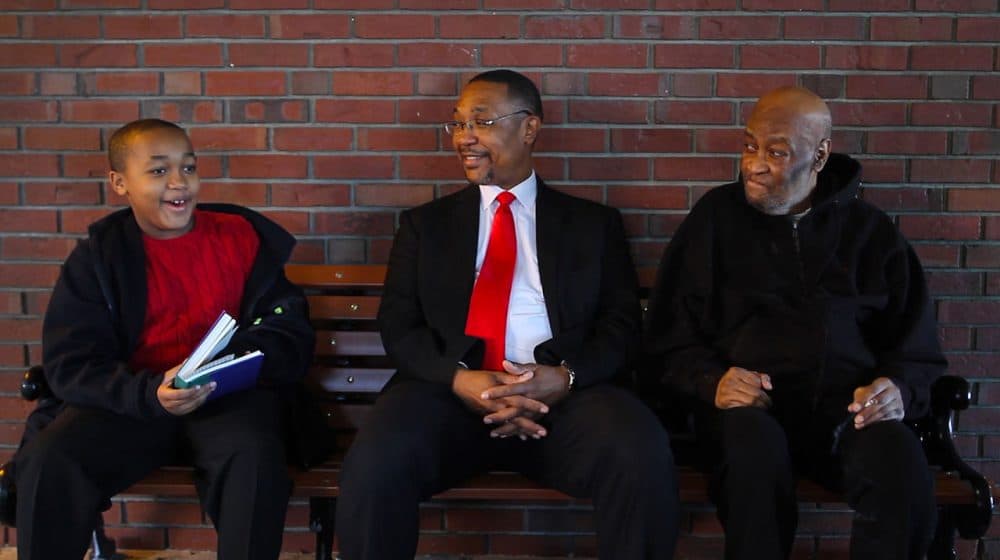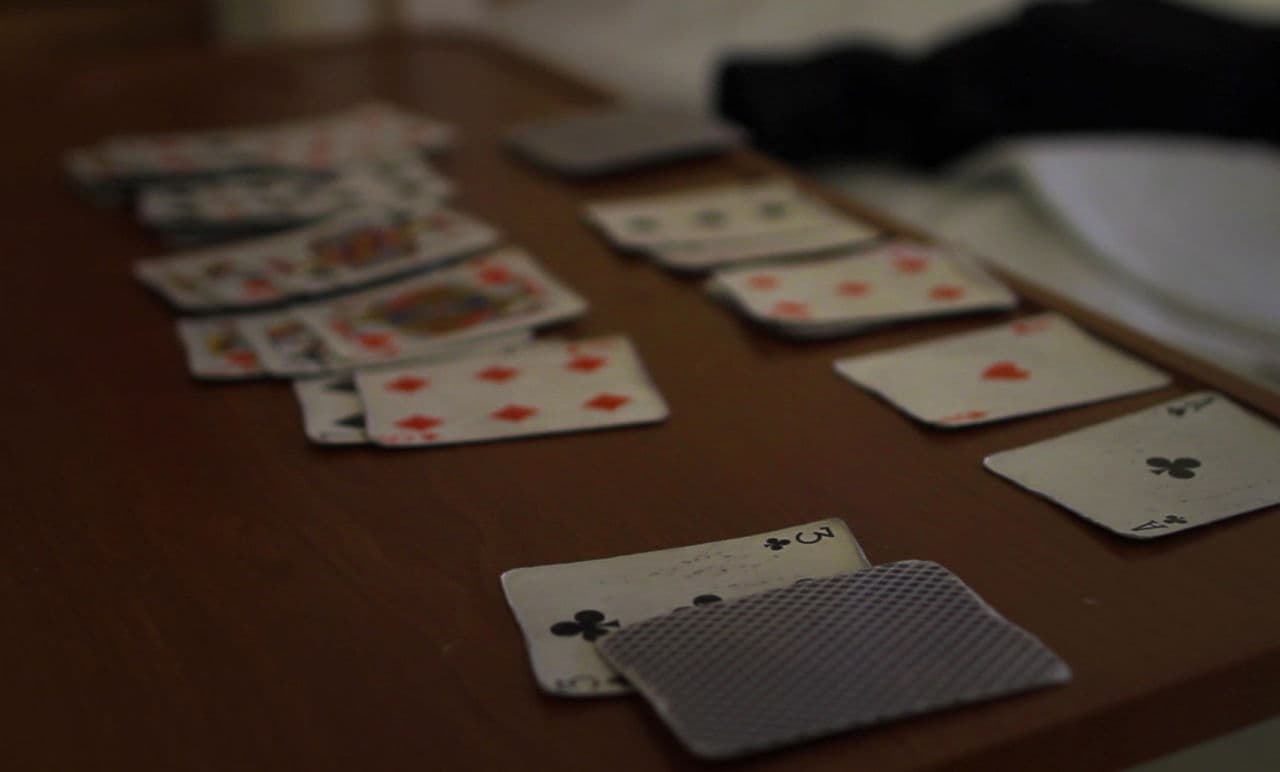Advertisement
Living With Dementia, A Former Addiction Counselor Relies On A Patient He Once Helped

Subscribe to the Kind World podcast here - and send us a message to share your story of kindness.
Every week, Kevin Davis gives Frank Fisher a shower. Usually it’s Sunday afternoon. When Kevin arrives at the rehabilitation center in Jamaica Plain, Frank recognizes him, but he may not remember exactly why he’s there -- one symptom of his dementia.
Kevin keeps coming back to help, because 20 years ago, Frank changed his life.
In the 1990s, Kevin was addicted to crack cocaine. He’d lost his job and his marriage to the addiction. After one particularly bad night when his children walked in on him getting high, he checked himself into a drug addiction treatment program. That’s where he met Frank.
The guys at the program told Kevin to watch out for Frank, one of the counselors. He swore and smoked and tore Kevin up in his first group meeting. When Kevin learned Frank had been assigned his counselor, he pleaded with the director, without luck, to let him switch. But the forced relationship changed Kevin. Frank’s gruff approach worked.
“He cared enough to tell you the truth,” Kevin remembers. “He would say, people wear masks. People play a part, but they’re not being themselves. What he meant was we need to be who we are. That stays with me more than anything.”
Kevin credits Frank with saving his marriage, and it was Frank who suggested to Kevin that he start working in counseling. So Kevin got his masters degree and joined Frank as another addiction counselor. Later, he would become director, running the program that had turned his life around.
The two kept in touch after Frank retired, but one day when Kevin called him, his phone was out of service. Kevin drove to Frank’s house; he wasn’t there.
“It’s not unusual that people’s phones go off, so I thought, OK, he’ll pay the bill, and in a few weeks the phone would come back on. It didn’t come back on.”
It was two years before they saw each other again. A mutual friend called Kevin with the news: Frank was in a nursing home. And when Kevin went to visit, he learned Frank had dementia.
“They said he wasn’t going home,” Kevin remembers.
“He oftentimes didn’t know who we we were, or he would repeat what he was saying every few minutes.” Carol Joseph, Frank’s sister, says. “He felt like everyone was attacking him.”
Advertisement
Frank would get angry if someone touched him. Nurses had trouble doing check ups or drawing blood, and Frank wouldn’t let the nurses shower him. So Kevin put on waterproof snow boots and jeans and gave Frank a shower himself.
“He had dirt caked on him. He probably hadn’t been showered in two months.”
Ten years after that first shower, Kevin’s still here. He clips Frank’s toenails or takes him for a haircut and lunch. He buys underwear and T-shirts and socks and labels them with Frank’s name so they don’t get lost.
They’re things Frank’s sister, Carol, might have done if she lived closer. “My husband said every person should have at least one friend like Kevin,” she says. "I think so, too. And they’d be lucky to have one.”
“His short-term memory is so bad that he doesn’t even remember that I come," Kevin says. "So that kind of makes me sad, because he has all these gifts he could give to other people that he’s not able to share.”
Kevin tries to keep Frank’s gifts and words alive when he works with addicts — Frank’s legacy, Kevin says.

On a recent Saturday, Frank is playing solitaire when Kevin arrives. Kevin hands him a plastic bag with snacks in it.
“What’s going on?” Frank asks.
“I came to see you! How are you doing?”
Frank says his back hurts. “I have a cold in my back.” He hasn’t told the nurses, so Kevin finds one. When he puts Frank’s socks on, he sees his foot is swollen and calls the nurse back.
Frank has been asking for a cigarette. Kevin knows to withhold it until after the shower, relying on a tough kindness that Frank once showed him. Then they find a bench outside where Frank can smoke.
“Everybody wears a mask,” Frank says. “We’re all hiding something. Pain. Anger.” He speaks slowly. “Kevin is Kevin. The mask came off when he came through the program.”
Any masks Frank has worn are gone now, too.
Later, Kevin says, “Dementia forms a whole new kind of mask, an involuntary one. ... But at the same time, it removes a lot of the masks, because all that’s there is what’s in him. It takes him back to his core being.”
Now, Kevin says, he and Frank have the purest form of friendship, one in which there's no pretending. Kevin says he’ll be there as long as Frank’s alive.
We want to hear your stories of extraordinary kindness. Send me a message, find us on Facebook or Twitter, or email kindworld@wbur.org.

